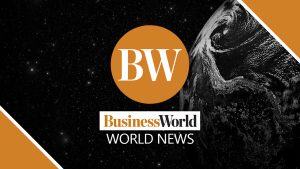Inflation eases to four-month low in November

By Lourdes O. Pilar, Researcher
INFLATION eased for the third straight month in November to hit its lowest level in four months but remained above the government’s forecast for the year.
Philippine Statistics Authority (PSA) data released on Tuesday showed headline inflation was at 4.2% in November, the lowest since July’s 4%.
Last month’s result was also down from 4.6% in October, but still higher compared with the 3.3% print in November 2020.
The latest reading was also higher than the 4% median estimate in a BusinessWorld poll conducted last week and the Bangko Sentral ng Pilipinas’ (BSP) 3.3%-4.1% forecast for November. This was the fourth straight month inflation exceeded the BSP’s 2-4% target for the year.
Year to date, inflation averaged 4.5%, also exceeding the BSP’s forecast of 4.3% for 2021.
The PSA attributed the downtrend in the headline print last month to slower inflation for food and non-alcoholic beverages (3.9% in November from 5.3% in October), as well as for alcoholic beverages (7.5% from 9.8%) and furnishing, household equipment and routine maintenance of the house (2.4% from 2.5%).
The National Economic and Development Authority (NEDA) noted slower price increases of food items, with an annual inflation rate of 4.2% in November from 4.6% the previous month.
“In particular, vegetable inflation turned negative at -1.8% in November from 11.4% in October. Fish inflation also dropped to 7.9% from 9.5% in the same period,” the NEDA said in a Viber message to reporters.
“Meat inflation likewise decreased to 10.7% from 11.9%, while pork inflation decreased to 17.3% from 23.3%. However, on a month-on-month basis, both meat and pork recorded positive inflation at 2.4% and 4.2%, respectively,” it added.
Socioeconomic Planning Secretary Karl Kendrick T. Chua said the government’s policy to temporarily import pork “has been effective” as pork prices have gone down month on month from July to early October.
“However, the uptick in prices in November shows that we need to further ease administrative requirements for the unloading and distribution of stocks to encourage more importation and help bring back pork prices to their pre-African Swine Fever level,” Mr. Chua was quoted as saying in the NEDA statement.
INFLATION TARGET TO BE BREACHED
BSP Governor Benjamin E. Diokno said the year-to-date inflation average of 4.5% as of November “[points] to a breach of the inflation target for 2021.”
“Nonetheless, average inflation is still projected to fall within the government’s target range in 2022 and 2023 as supply side pressures moderate,” Mr. Diokno said in a Viber group message to reporters.
The central bank official said risks to the inflation outlook are “on the upside” for next year but “remain broadly balanced for 2023.”
“Upside risks are mainly linked to the potential impact of weather disturbances on the prices of key food items and the possibility of a prolonged recovery of domestic food supply. Strong global demand amid persistent supply-chain bottlenecks could also exert further upward pressures on international commodity prices,” Mr. Diokno said.
“Meanwhile, potential delays in the lifting of domestic lockdown measures as well as the emergence of more transmissible COVID-19 (coronavirus disease 2019) variants could dampen the prospects for both global and domestic demand and temper inflationary pressures,” he added.
The NEDA said a further easing in mobility restrictions while observing health protocols is “crucial” to sustaining the economy’s recovery amid the threat of COVID-19’s Omicron variant.
“As restrictions ease, we recommend increasing public transport capacity to 100% as vaccination rates increase to reduce crowding in terminals and help protect commuters and drivers from future oil price shocks,” said Mr. Chua.
Separate PSA data released on the same day showed inflation for the bottom 30%, which reflects the spending patterns of the poor by modifying the model basket of goods, settled at 4.2% in November. This is slower than the previous month’s 4.8% but still faster than the 3.6% print in November 2020.
From January to November, the bottom 30% inflation averaged 4.8%.
Asian Institute of Management economist John Paolo R. Rivera said in an e-mail that price movements “will slowly relax” if the global situation “will continue holding the threat of the Omicron variant constant.”
University of Asia and the Pacific Senior Economist Cid L. Terosa expects inflation to be “lower than 4.5% in December,” with the year’s print likely to settle between 4.2% and 4.5%.
He said the BSP’s Monetary Board is unlikely to raise interest rates in its policy meeting on Dec. 16 as price increases appear to be “transitory in nature.”
Meanwhile, JPMorgan Chase Bank N.A. Singapore Branch economist Nur Raisah Rasid said they expect the BSP to tighten policy settings in the fourth quarter of next year.
“A broader economic recovery could narrow the saving-investment gap with the second order effects from growth-led currency weakness and impact on financial and price stability to set the stage for policy normalization in [the fourth quarter of 2022],” Ms. Rasid said in a statement. “A faster-than-anticipated recovery as inflation rises to the upper bound of BSP’s 2-4% target range increases the risk of an earlier move by the central bank.”




